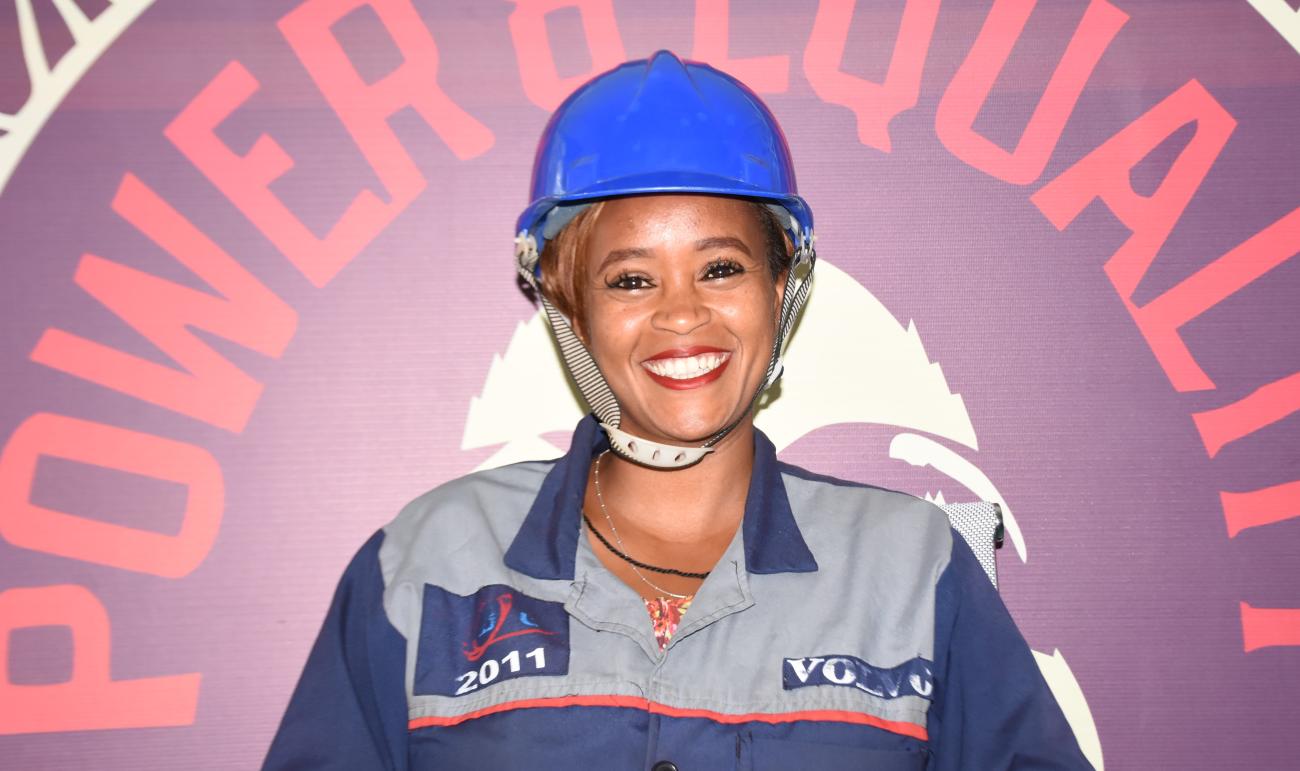Compared to other sectors, the industrial sector is a sector with a low representation of women. This imbalance is attributed to different factors including assumptions of tough industrial jobs for men only and the overall stereotypes associated with male-dominated society.
UNIDO promotes a just world where women and men equally lead, participate and benefit from industrial development. To reduce the gender gap and empower women, UNIDO advances gender equality and the empowerment of women through its projects and programmes.
The UNIDO Medium-term Programme Framework 2022- 2025 commits to address gender inequalities in industrial development, and to harness women’s full potential as leaders and agents of change, thereby transforming economies and generating inclusive growth.
For Hanna Nigusse, aged 26, situations were not easy when she joined Selam Technical and Vocational (STV) College to study commercial vehicle and heavy duty machinery maintenance training in 2017 as the first and only female trainee. “My family and friends advised me to attend a cooking and catering school instead of a technical college,” Hanna said. “The problem begins from childhood when girls are given special roles at home. The society I grew up strongly believes that girls’ and women’s jobs are mainly limited to household chores.”
However, this did not deter Hanna from pursuing her childhood dream to be a vehicle maintenance mechanic. After 4 years of training, she concluded her study and started working in a local garage for seven months before she joined the same college to take a Trainer of Trainees course. She is currently a trainer at heavy duty machineries and commercial vehicles training academy, owned and managed by STV College. “Girls should have the commitment and determination to follow their dreams, break the barriers on their ways to achieve what they want,” she added. “Nothing is specifically difficult for girls and women.”
Through gender-targeted actions and gender mainstreaming, UNIDO’s programmatic offer facilitates the transformation of social norms and power relations in industry by increasing the access of women to productive resources; creating enabling conditions for women’s entrepreneurship and job creation, education, vocational training and women’s leadership; promoting women’s agency in climate change adaptation and mitigation; and building the knowledge and capacity for gender-responsive industrial development.
UNIDO and its partners support a specialized skills development through a private-public development partnership. Training institute for commercial vehicle drivers and mechanics in Ethiopia: a private-public partnership project to support specialized skills development. The project aims at creating productive employment opportunities for Ethiopian youth, both young women and men, in heavy duty machineries and commercial vehicle maintenance and driving and improve the shortage of skilled labor in transport enterprises.
With the view of alleviating the gaps with skills development the project supported the establishment of a state-of-the-art and functional heavy duty equipment and commercial vehicle maintenance and drivers training academy in the premises of STV College in Addis Ababa. The training academy is equipped with various state-of-the-art training equipment and educational materials. At the training facility, trainees acquire the required knowledge, skills and attitude to become professionally trained heavy duty mechanics and commercial vehicle drivers and also driver trainers.
The project also strives to increase women participation and ensuring gender balance through addressing gender inequality and creating better job opportunities. Since the project inception in 2017, a total of 361 (7% women) certified driver trainers successfully completed their training to become certified commercial driver trainers. Women participation is gradually growing but still more effort is needed to ensure the wide imbalance. With this regard, Hanna and other women participants can play a key role as agents of change.
Hanna has a dream to start her own vehicle maintenance garage or vehicle mechanics training school in the future, which require significant financial investment that Hanna and many young people can’t afford. In response to this challenge Hanna commented that the government, the private sector and development organizations need to intervene with creating access to financial servcies.
Gender equality and the empowerment of women lies at the heart of Inclusive and Sustainable Industrial Development (ISID). Guided by the motto “Progress by innovation” UNIDO is committed for industrial development to support sustainable supply chains, climate action and ending hunger so as to create decent jobs for everyone, especially for the young generations, women and vulnerable communities in developing countries.



